Sightseeing Spots
Search Results308
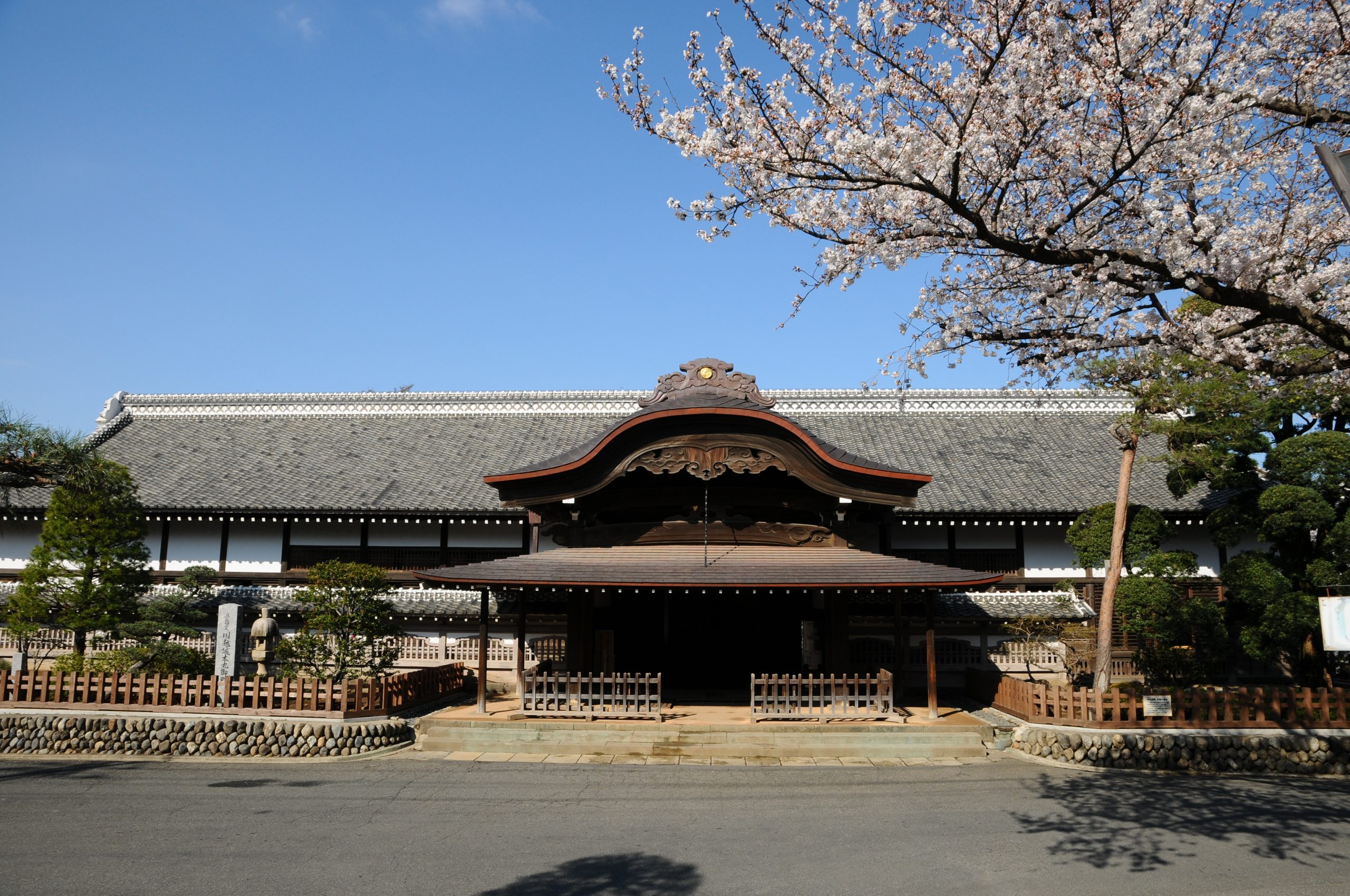
The Kawagoe Castle was built in the first year of Chōroku Era (1457) under the command of the vassals, Ōta Dōshin and Dōkan (father and son), for Ōgigayatsu Uesugi Mochitomo to compete against Koga Ashikaga Shigeuji. In the Edo period, it was of utmost importance to protect the north side of Edo, which is why the top vassal traditionally become the lord of the castle. The current building was constructed in the first year of Kaei era (1848). It is open to the public after a two and a half year restoration.
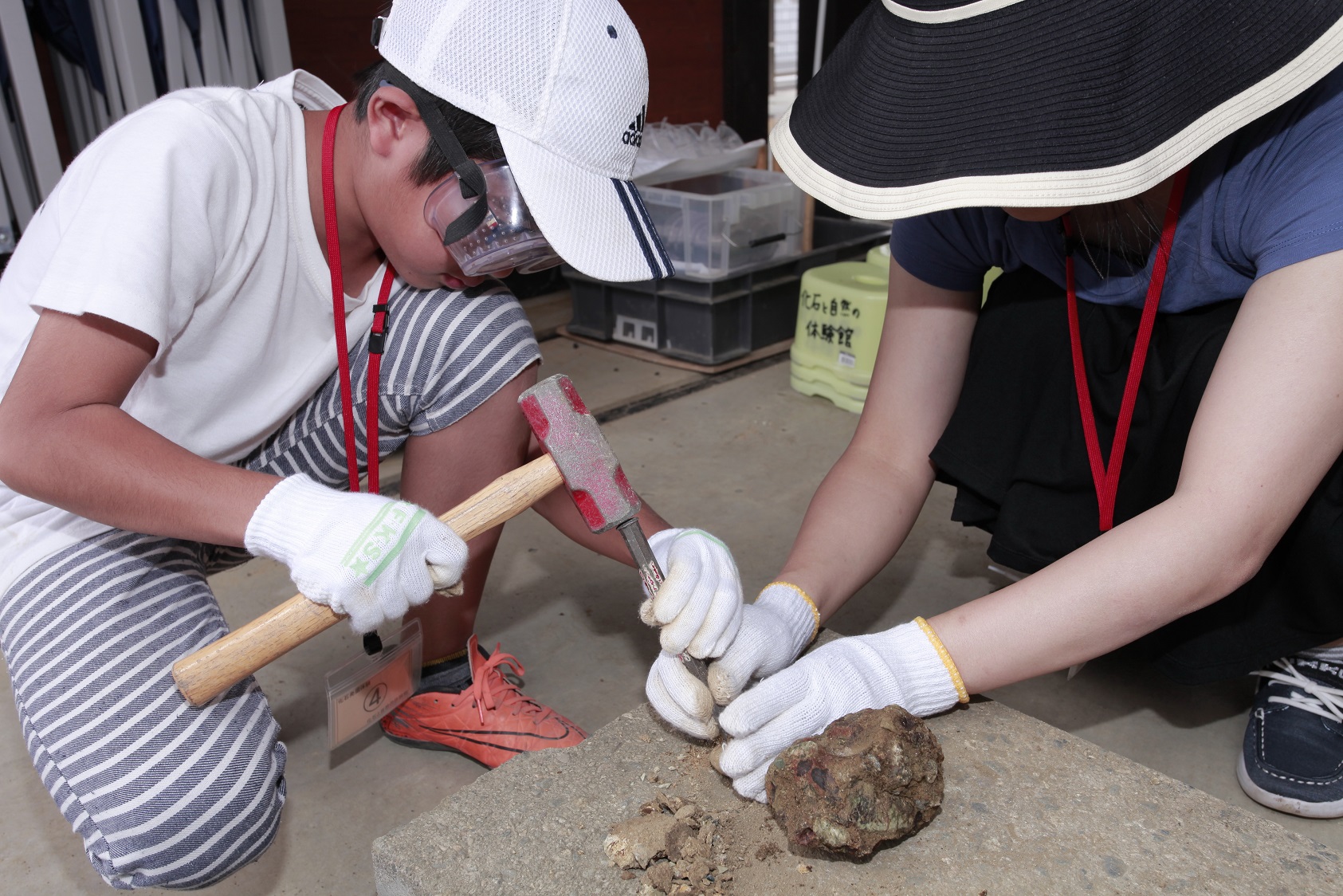
The Iwadonokyūryō (rocky hills) around this experience center are comprised mainly of the Toki River layer group, strata accumulated in the sea 10 to 15 million years ago, which contain a wide range of fossils. This experience center is the only facility in the prefecture where visitors can experience digging up fossils, such as shark teeth, from 15 million-year-old conglomerate rock. Together with the lecturer, challenge yourself to dig up fossils using a sieve, hammer and chisel! Most of the fossils you find can be brought home, with some exceptions. Since the fossil digging takes place inside the facility, activities can be enjoyed even on rainy days.
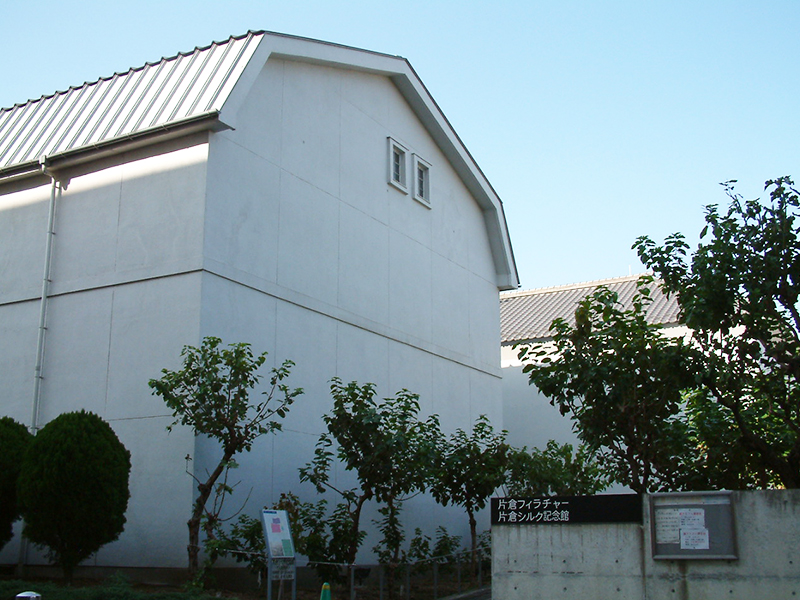
The Katakura Silk Commemorative Museum is built inside of Kumagaya Factory, the cocoon warehouse of the last remaining silk manufacturing plant of Katakura Industries, and is recognized as a Heritage of Industrial Modernization by the Ministry of Economy, Trade, and Industry. To preserve and pass on the company's 121-year history of silk production, the museum displays the machinery used to produce silk at Kumagaya Factory, and visitors can watch the entire process from cocoon to raw silk.
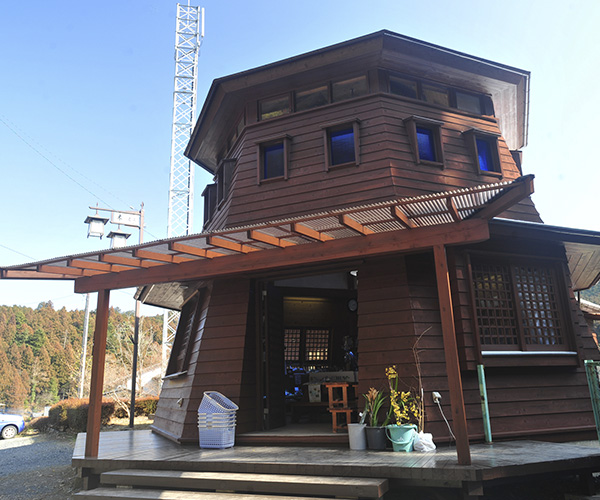
Passing along a road within the mountains, you will come to a direct sales farmers market built from Japanese cypress (hinoki). The shop specializes in mountain mushrooms and wild vegetables harvested in the Ohno region. The “Chirimen Norabō-na,” only available at this shop, is popular every year for its sweetness. The building is the oldest of the town's four direct sales shops, and is said to be the model for Myōkaku Station, which has the same octagonal shape.
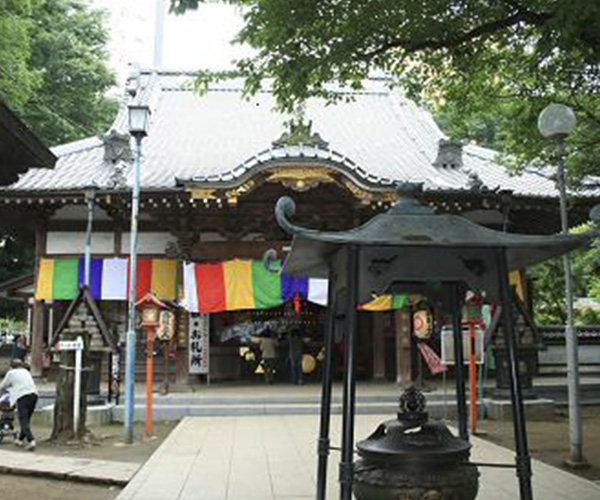
Founded in 1549 by Renkei Daishi, the mother of Kawagoe Castle Lord Masashige Daidoji. Later during the Tokugawa period, it was officially recognized as a temple and made into a school for Buddhist monks, and many Buddhist monks were educated there. In addition, the temple enshrines Fukurokuju, one of the 7 lucky gods of Kawagoe. Events are held at the temple on a regular basis.
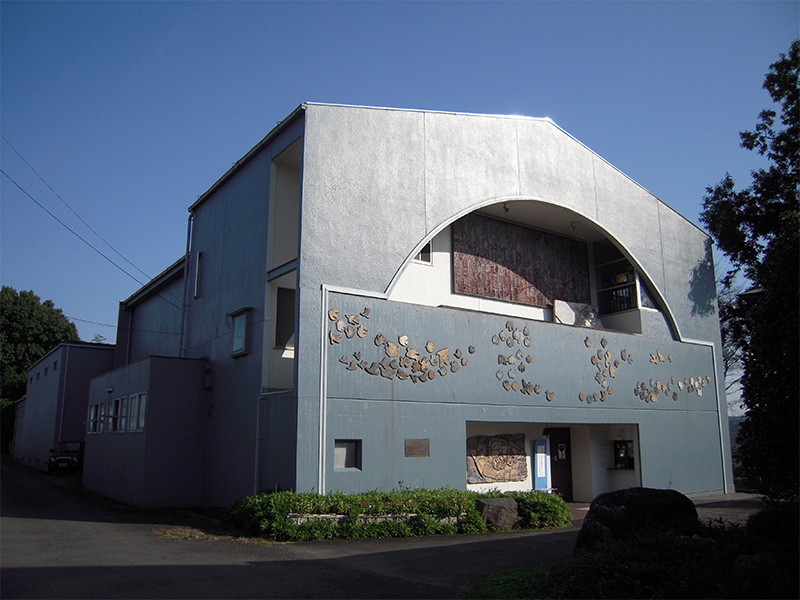
Maruki Gallery for the Hiroshima Panels was built by the collaborative husband and wife artists, Toshi and Iri Maruki, to create a place to exhibit their work "The Hiroshima Panels," 15 panels depicting the effects of the atomic bombings of Hiroshima and Nagasaki. In 1966, they moved to Shimogarako, Higashimatsuyama City, opened the Maruki Gallery for the Hiroshima Panels the following year, and then spent more than 30 years completing all 15 panels. The museum also holds special themed exhibitions, lectures, concerts, and other events on the theme of life and war.
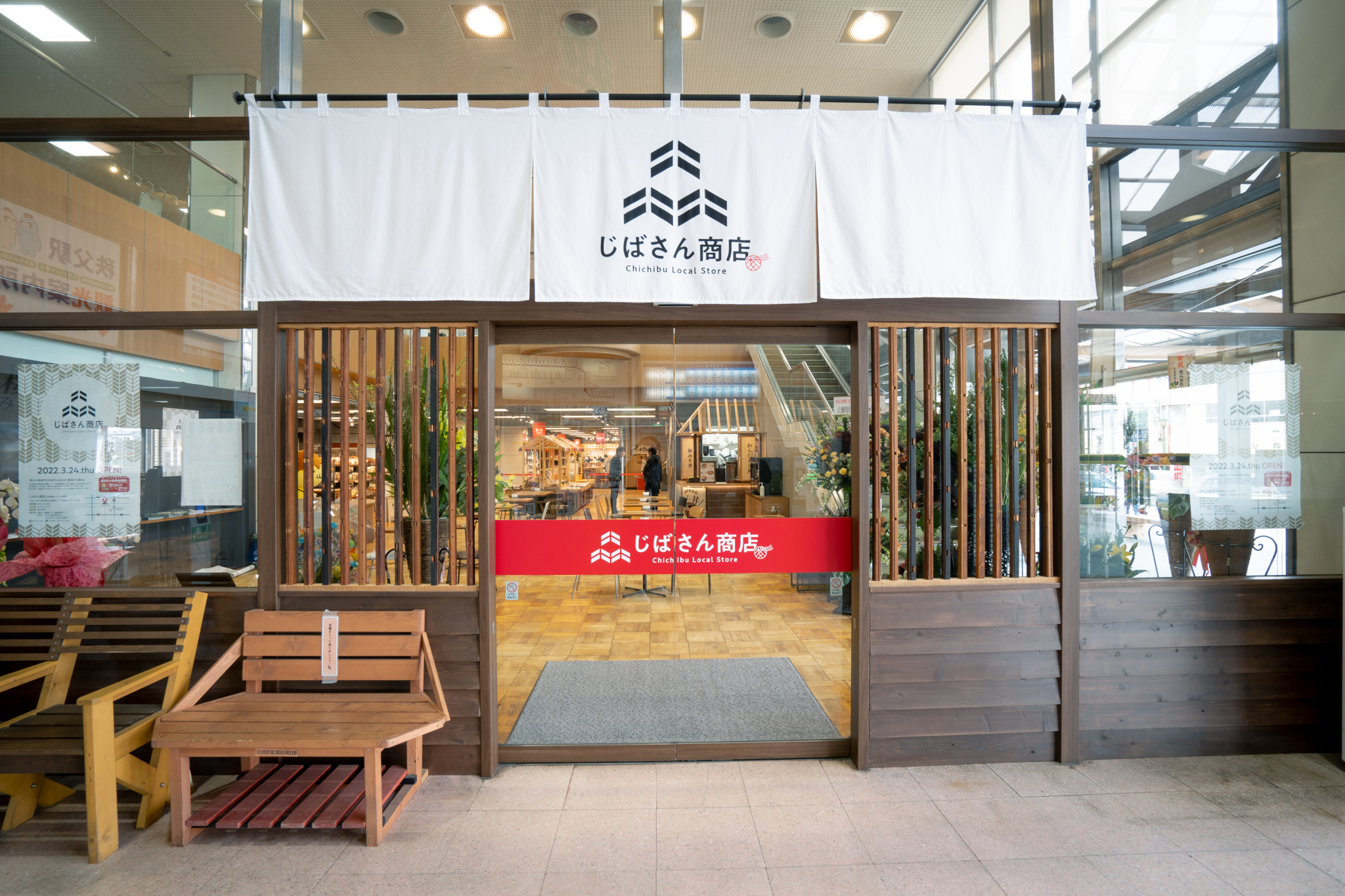
If you're on the search for Chichibu souvenirs, look no further! At Jibasan Shoten they have a wide range of popular souvenirs from the Chichibu area, including vegetables from local farmers, unique area gems, and many goods including the local mascot character, Potekuma-kun. You can also find products to get a taste of daily life in Chichibu, or even find the perfect gift for your loved ones. We look forward to your patronage!
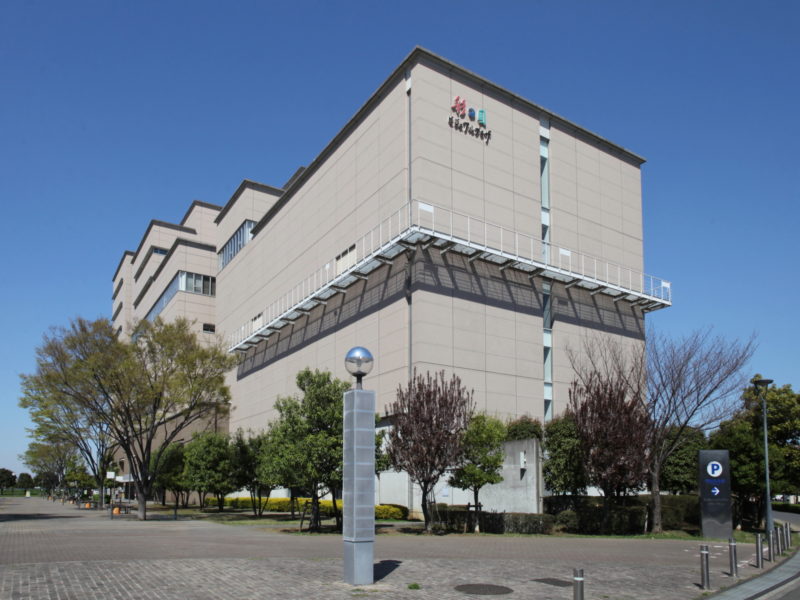
This is the main facility of the SKIP City Project, the project goal of which is to introduce and accumulate information for the next-generation of the audiovisual industry. For the general public, the facility contains a participation-based "audiovisual museum" where people of all ages can learn video production, an "audiovisual library" where visitors can watch culturally significant movies and TV programs, and an "audiovisual hall" to enjoy film showings and various events. ※ For more information regarding the facility, please refer to the URL below.

Okegawajuku, home to cultural properties such as Takemura Ryokan (former Hatago) and the residences of the Shimamura and Kobayashi families, is reminiscent of the past Nakasendo post town. The safflower, Okegawa's specialty, brought wealth and culture to Okegawajuku, and can be seen at the Okegawa Inari Shrine on the stone lanterns donated by safflower merchants.
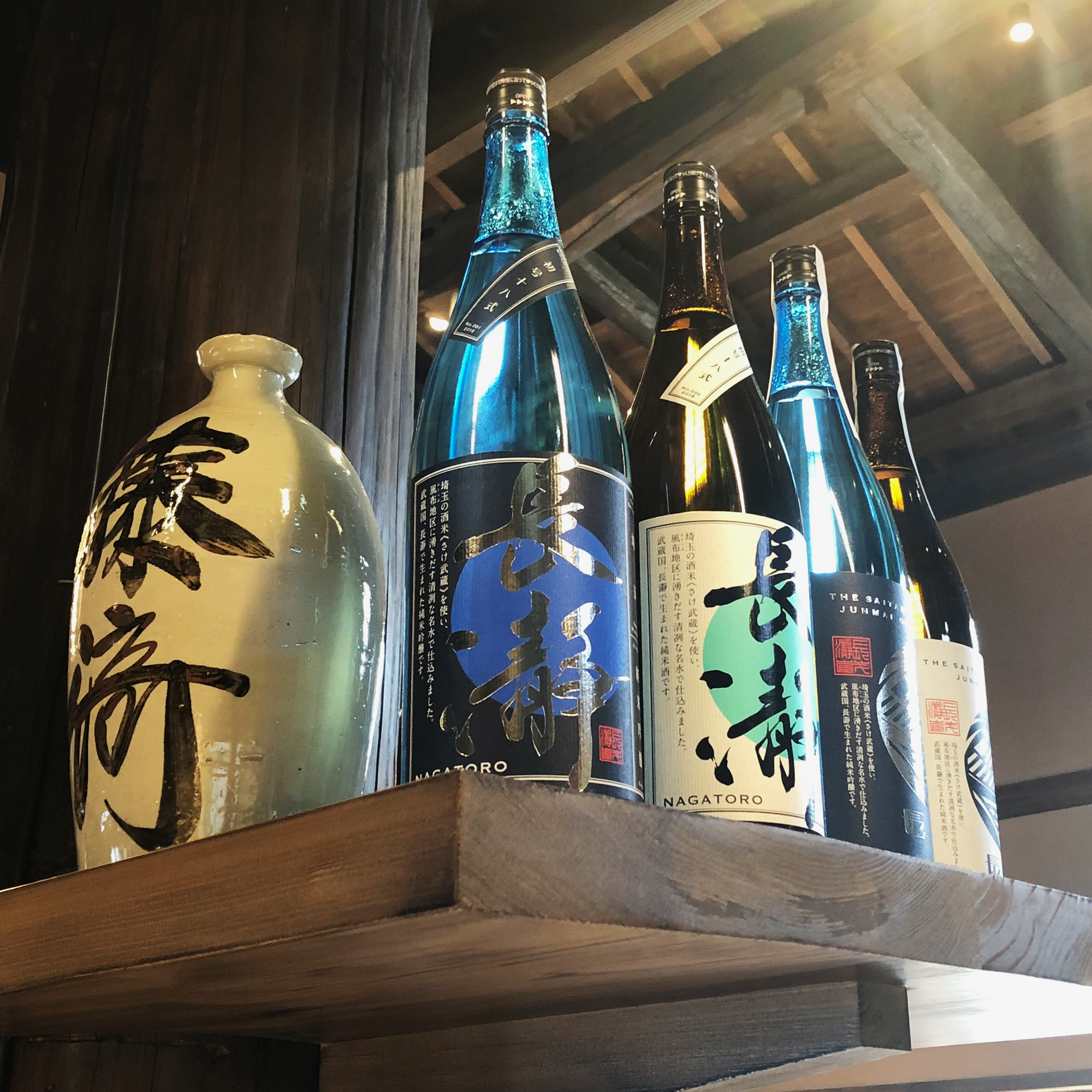
Established 290 years ago, Nagatorogura Sake Brewery and Boutique Store is a sake brewery that carries on the spirit of 11th Hino merchant Sōbē Fujisaki, who devoted his life to bringing Saitama’s Japanese sake to the world. In September 2018, to further pursue Sōbe Fujisaki's sake brewing tradition of “polish with skill and brew from your heart," the sake brewery moved to Nagatoro, a beautiful place of nature. Using naturally flowing water from the Fuppu area and rice grown on Saitama soil, we are producing the Japanese sake "THE SAITAMA ORIGINAL." (For more information about our facility, please visit the URL below.)
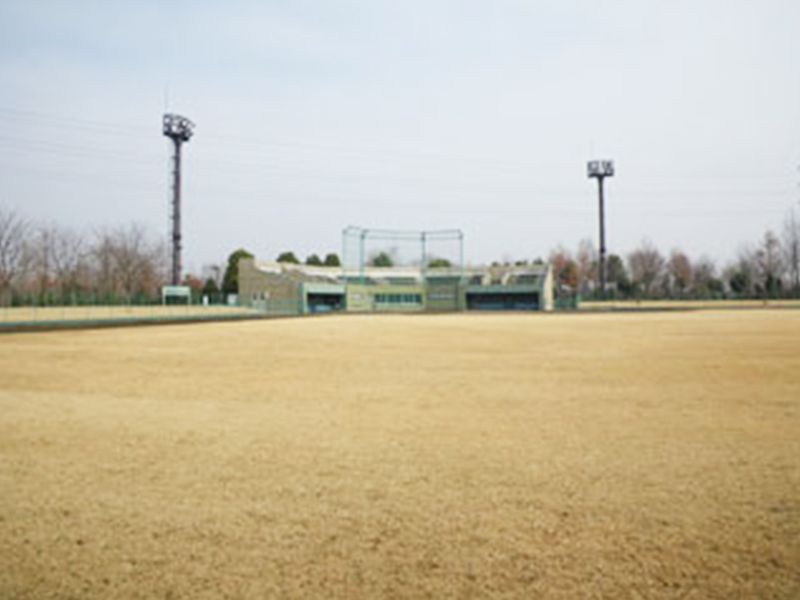
Tsurugashima Sports Park is known for its plentiful greenery and support of the natural ecosystem. There is a wooded area which utilizes existing trees to their fullest, a waterfront centered around the Oootagaya marsh and exercise facilities located on the main ground. This athletic park can be easily enjoyed by people of all ages, from children to the elderly. In addition, it is the site of the Tsurugashima Cherry Blossom Festival in spring and the Tsurugashima Industry Festival in fall, making it a center of tourist activity for the city.
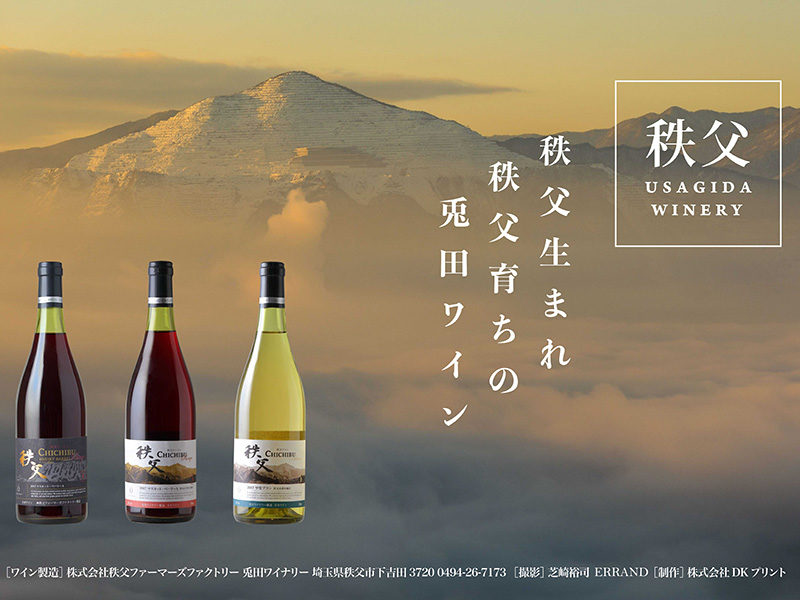
Tours of the wine factory and vineyard, free samples and sale of wines at the in-house direct sales store, and meals at the company-owned restaurant (business days specified) are available.
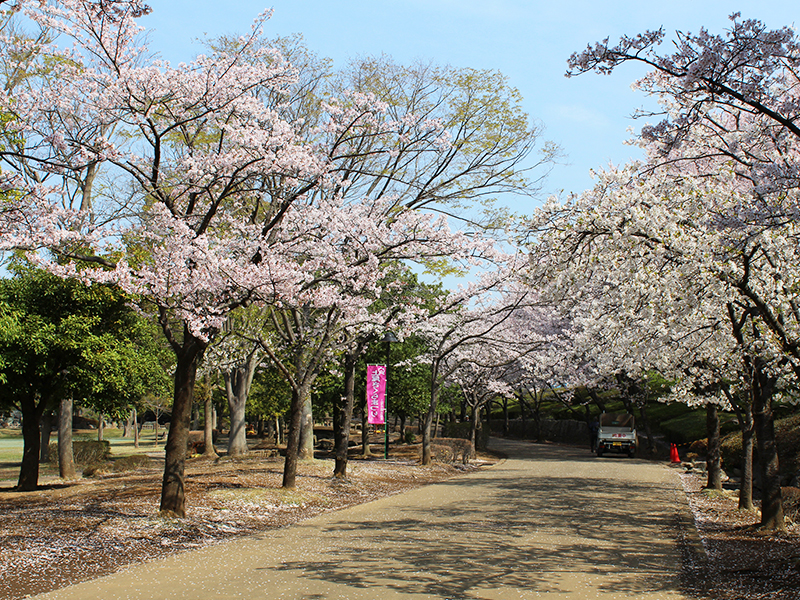
Ageo Maruyama Park was opened in 1978 with the theme "a harmony of greenery and water." It has a small animal corner, a children's amusement park, a barbecue area, a nature learning center, and a large pond, making it a popular place to visit.
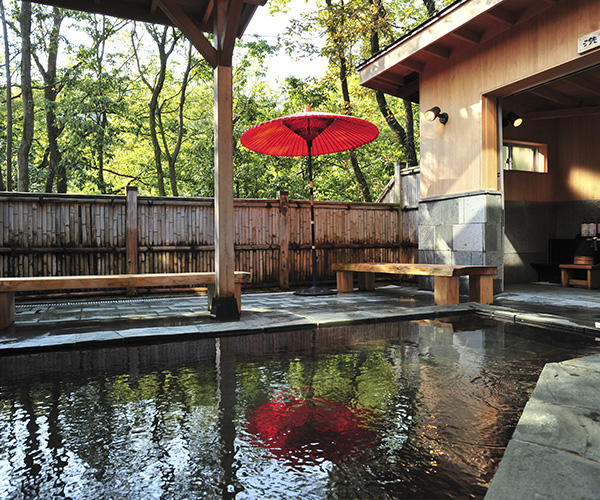
This day trip hot spring facility was built in a relocated old private house. Located near the Tokigawa River, guests using the footbath on the Japanese-style terrace (engawa) are treated to the sounds of the calming babbling brook. There is also a nearby BBQ area you can visit with no preparation. After BBQ, you can relax and recharge in the hot spring.
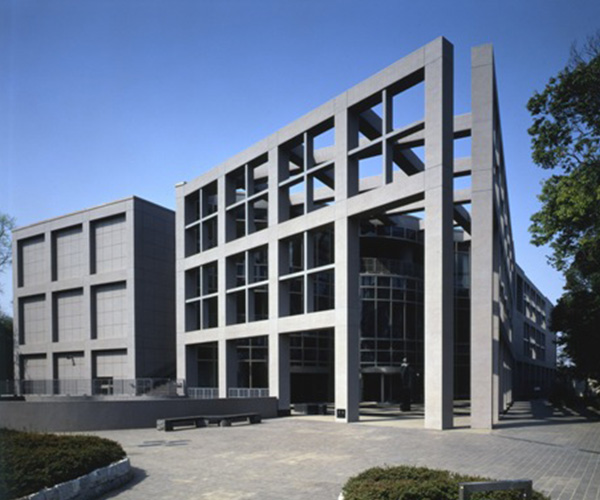
The Museum of Modern Art Saitama (MOMAS) was opened in the rich greenery of Kitaurawa Park in 1982. A collection of superb art pieces is on display, with works from artistic masters such as Monet, Chagall, Picasso and modern Japanese artists. Special exhibitions with unique themes are frequently held, and there are many "good design" chairs that can be used freely. In addition, there are museum concerts, lectures, and workshops for both parents and children to enjoy. There are also museum shops with select art books and goods, along with a restaurant serving authentic Italian food, making the museum an ideal place for both fun and comfort. (For more information regarding the facility, please check the URL below.)
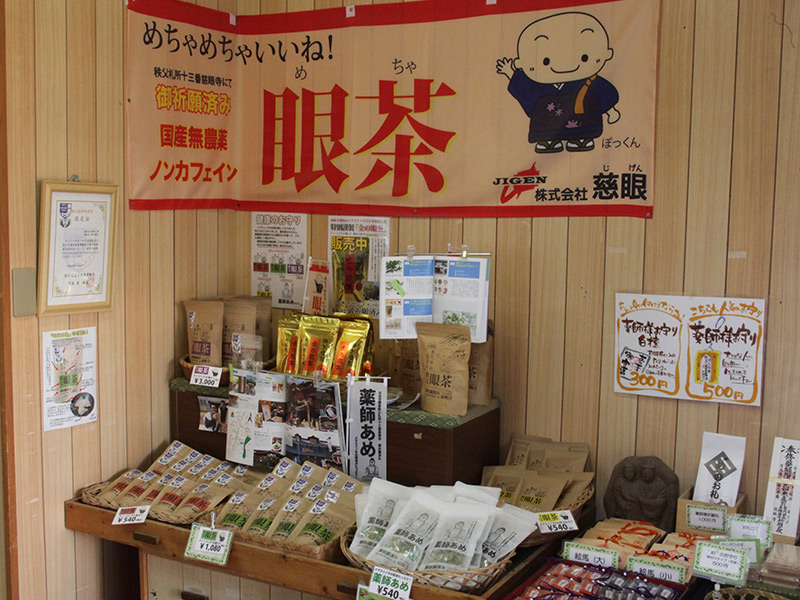
Jigenji is Chichibu’s 13th sacred site on Japan’s 100 Kannon Pilgrimage. It has been famous as a "temple for eyes" for 780 years. Worshippers come from all over Japan with worries and concerns regarding the eye.
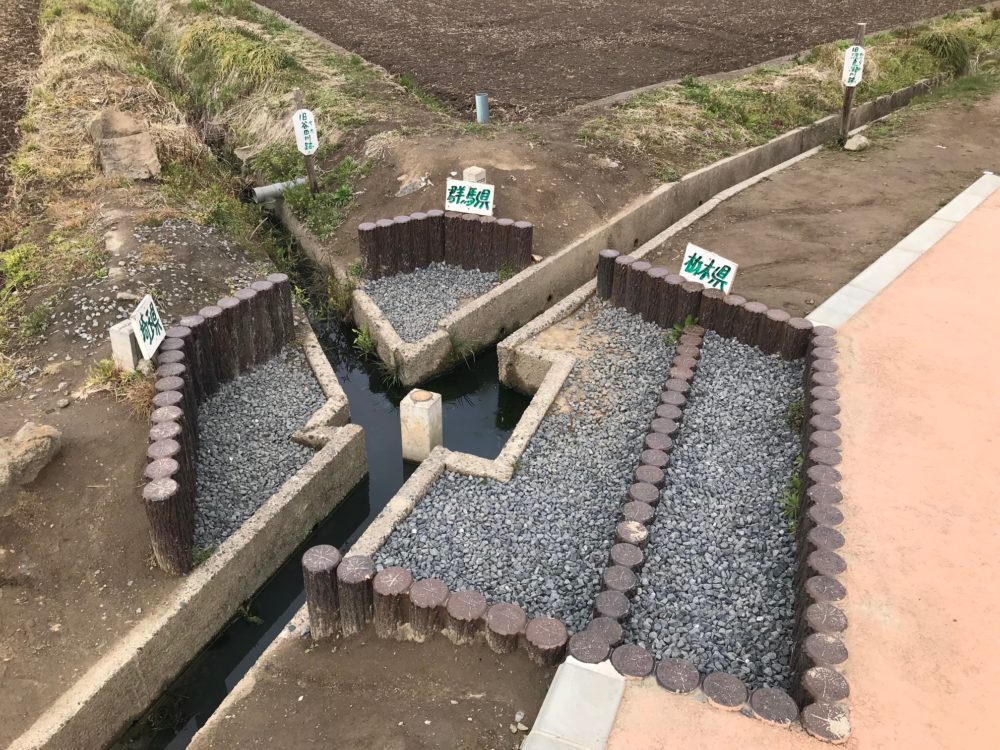
The Border of Three Prefectures straddles Tochigi Prefecture’s Tochigi City, Gunma Prefecture’s Itakura Town, Saitama Prefecture’s Kazo City (around the Kitakawabe region), and comes together at a rice field approximately 500 meters to the southeast of Roadside Station Kitakawabe. The Border of Three Prefectures was located inside the Watarase River, however during the restoration of the river during the Meiji and Taishō periods, the location was changed to the current river channel. From January to March of 2016, land measurements were carried out by Tochigi City, Itakura Town, and Kazo City and an old stake made from concrete, assumed to be installed prior, was discovered and confirmed as the true point of intersection of the three prefectures.

The date of its establishment is unknown, but it is said to have been built either in the Meiō period (1492-1501) or in the first year of Jokyo (1684). It is said that when a Buddhist priest named Genkai visited the Fushimi Inari, he built a sutra mound with 10,000 Lotus Sutras buried inside. In the precincts, you can also find a shrine dedicated to Shingoro Takahashi and his wife Ise, who developed Warabi's textile industry, and a heart-shaped stone known to grant visitors success in their pursuit of love.
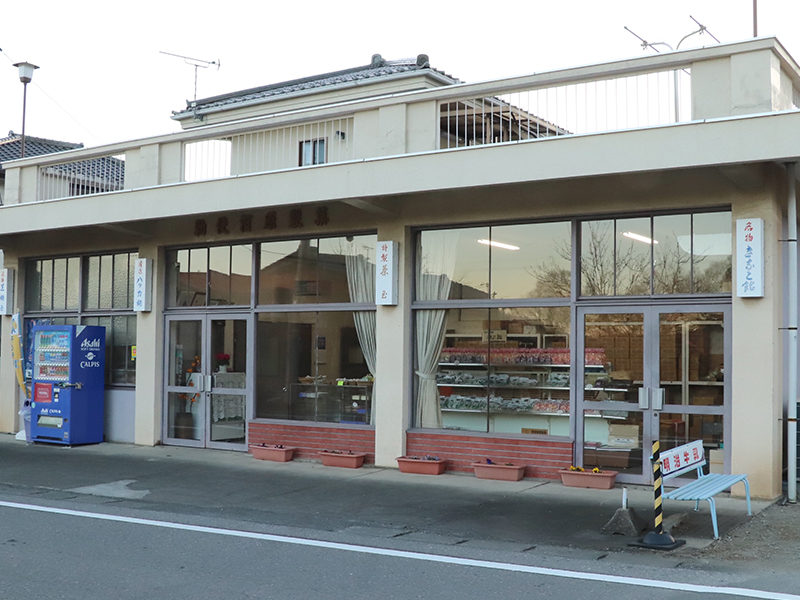
A long-established candy and confectionary manufacturer and distributor founded in 1864. “Chichibu Ame" (candy) is meticulously handcrafted the traditional way using carefully selected ingredients while retaining their original flavor and umami. Almost all of the products are additive-free, making it safe to eat for people of all ages.
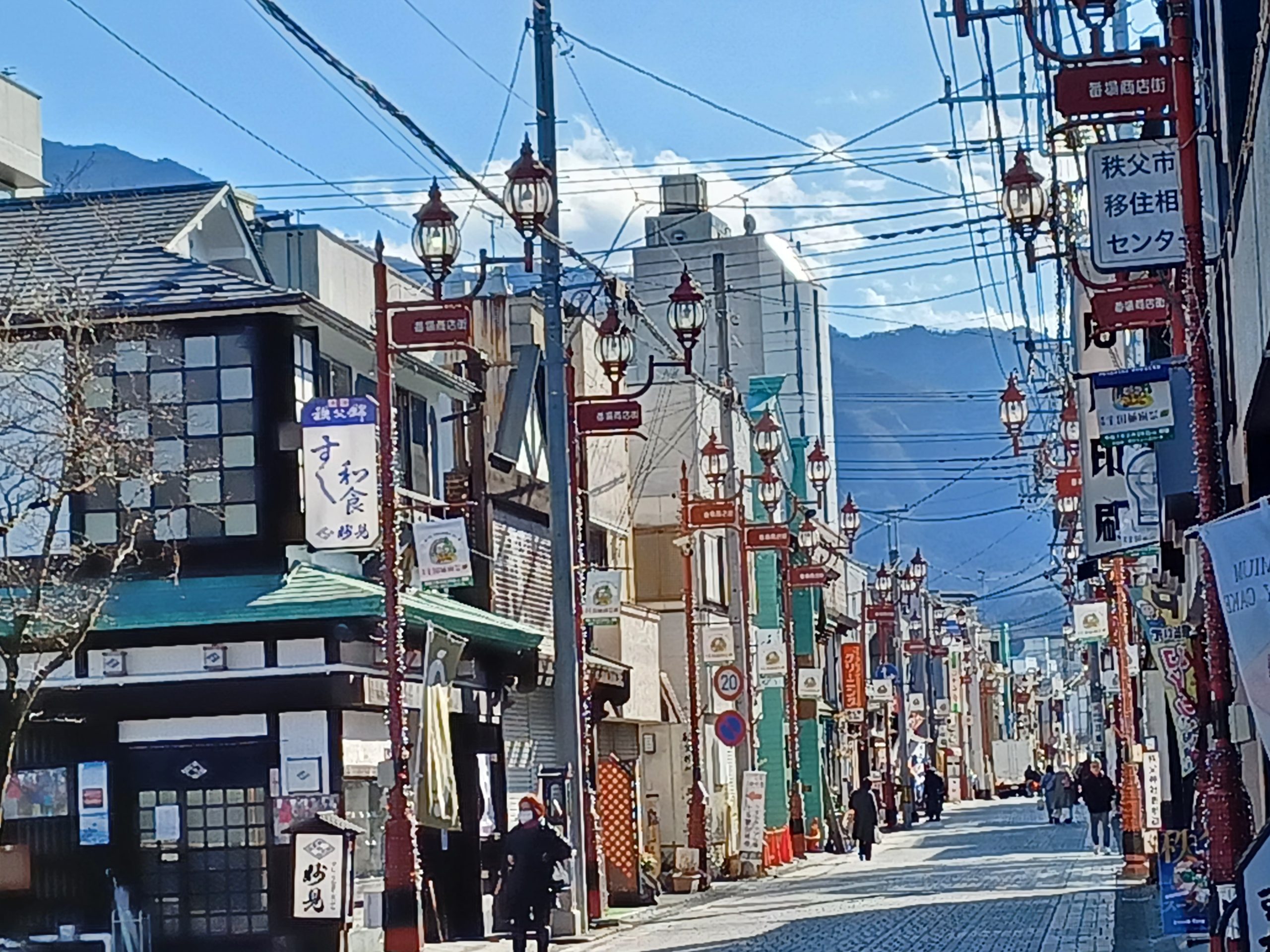
Chichibu Shrine has long been an important presence in the town and remains a popular spot for Chichibu residents. Many structures dating from the early 1900s line Banba Street, the cobblestone road that leads to the shrine, providing a nostalgic atmosphere that recalls times gone by. Many shops still operate in buildings designated Registered Tangible Cultural Properties by the national government, allowing visitors to travel back in time to an earlier Japan.

You can enjoy a variety of gravity-based activities from suspension bridges built on the banks of the Arakawa River using the piers of the former Shirakawa Bridge. Wear a harness and walk on the suspension bridge, cross the Arakawa Valley while connected to a cable, or swing over the valley on a trapeze! You can even bungee jump! Enjoy the great outdoors of the Arakawa Valley while taking part in many thrilling activities!
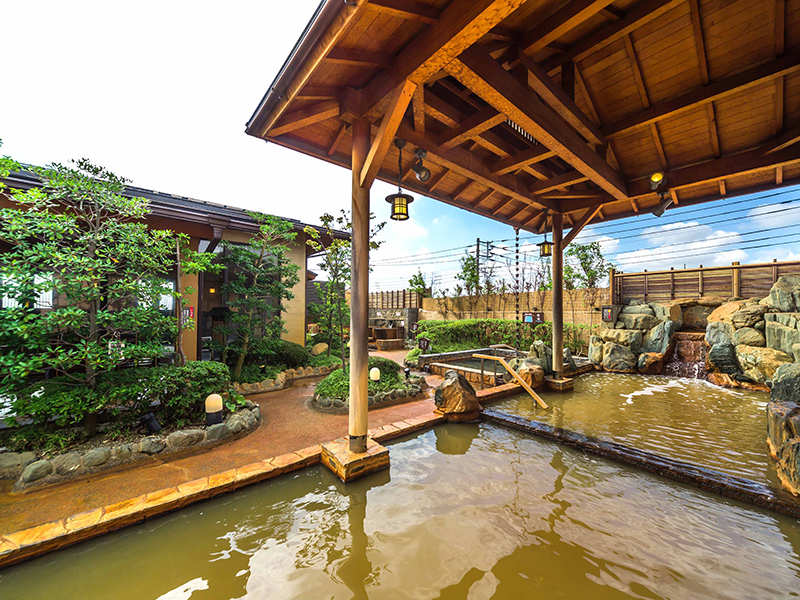
The water at this hot spring, which flows from 1,500 meters underground, scored a maximum score of 5 out of 6 categories in the Japan Natural Hot Spring Examining Authority inspection! With a composition similar to salty seawater, it is also called “Netsu no Yu” (high temperature bath) due to the amount of cold water needed to cool it down. Another appeal is the fact that this hot spring can be enjoyed during the colder months without any added water. The high-concentration carbonated spring, which even garners the attention of the medical industry, can also be enjoyed.
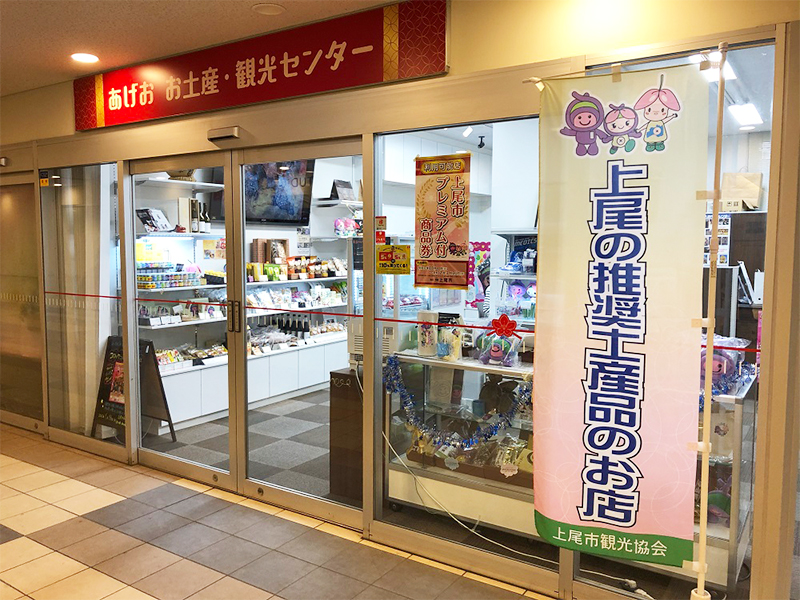
You can buy souvenirs recommended by the Ageo City Tourism Association here! They also sell tickets for Saitama Ageo Medics and commuter passes for the Tobu and Asahi Buses.
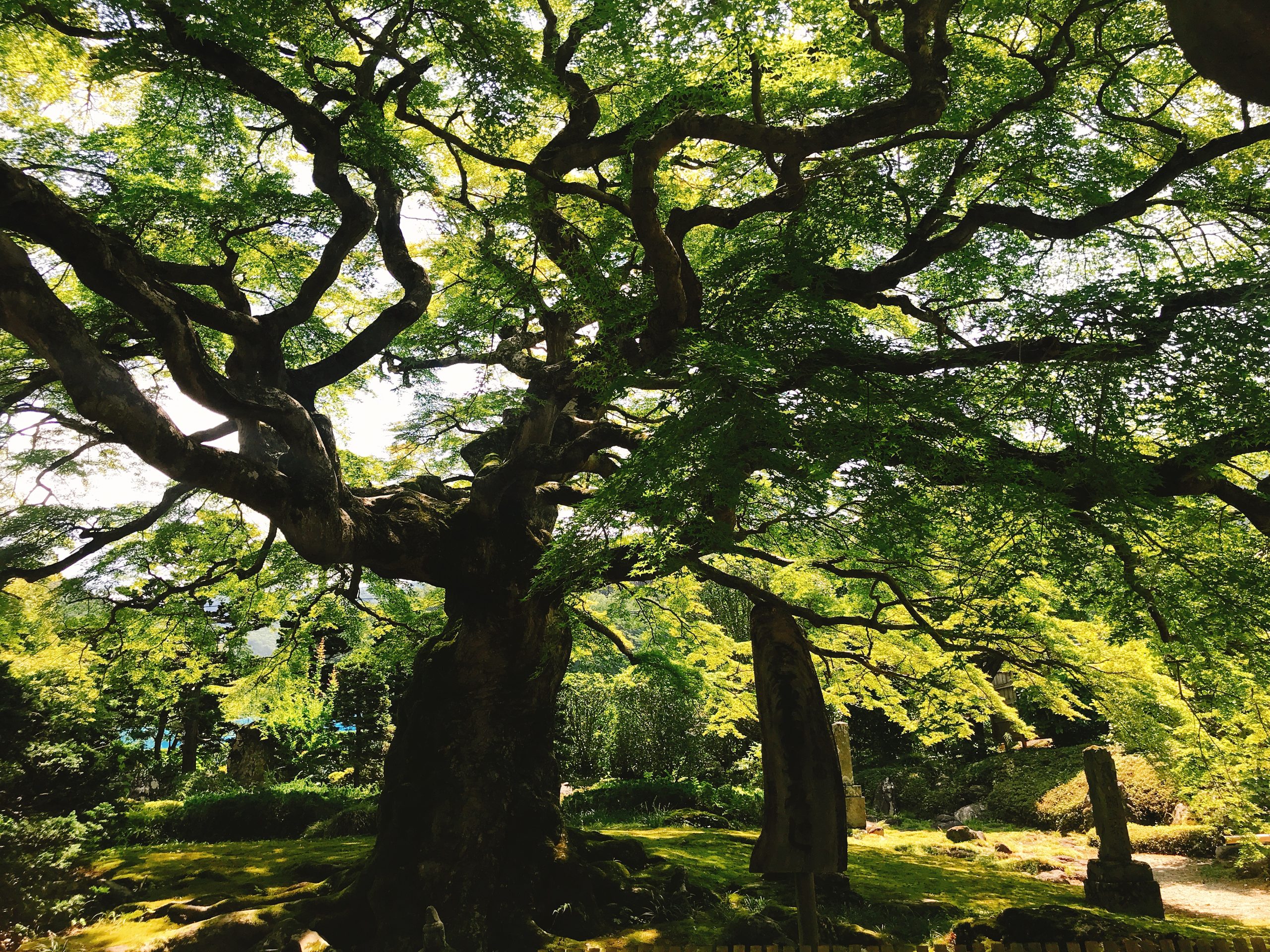
The change of the seasons can be enjoyed in the large, elegant butterfly maple tree, said to be 600 years old and designated a Saitama Prefecture Natural Treasure. The trunk is 3.8 m in circumference, 7.2 m in height, and the canopy measures 18.9 m north to south, 20.6 m east to west, and 56.3 m in circumference. The peak for autumn leaves is mid to late November. The "Night Zazenkai" (Night Zen Meditation) is also held on the 8th of every month from 7:30PM. A soba restaurant, "Teuchi Soba Machida" is nearby, and you can enjoy a meal of handmade soba while viewing the changing seasons.
This site uses cookies to improve the user experience. If you continue to browse, you consent to the use of cookies on this site. Accept
CONTACT
